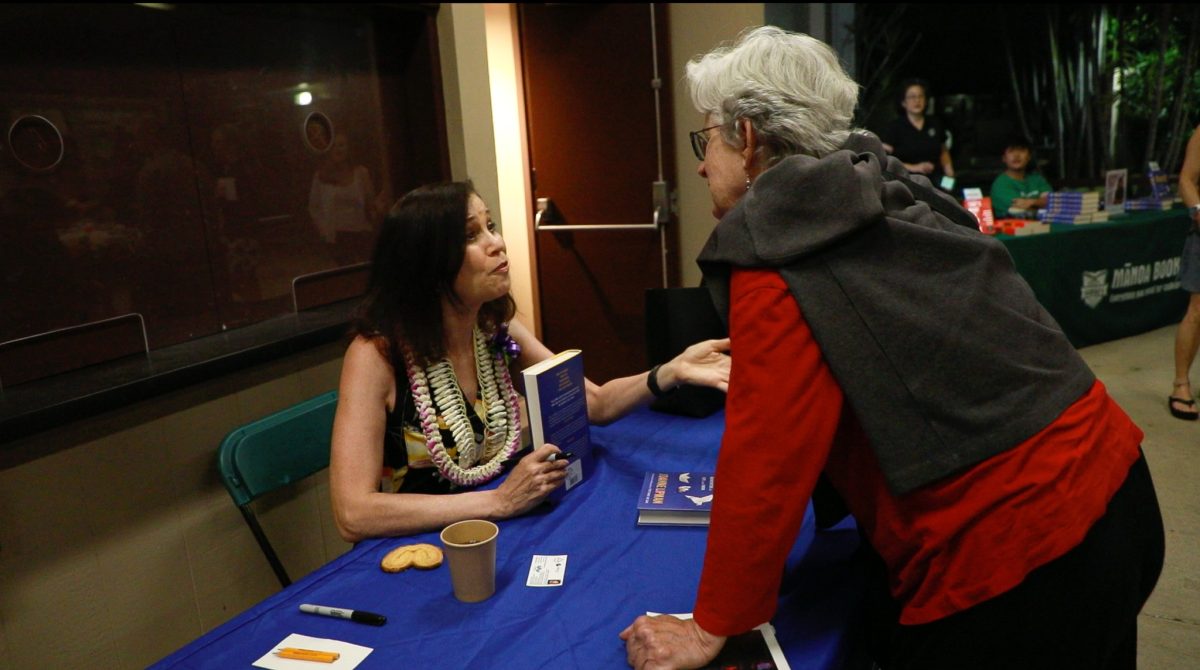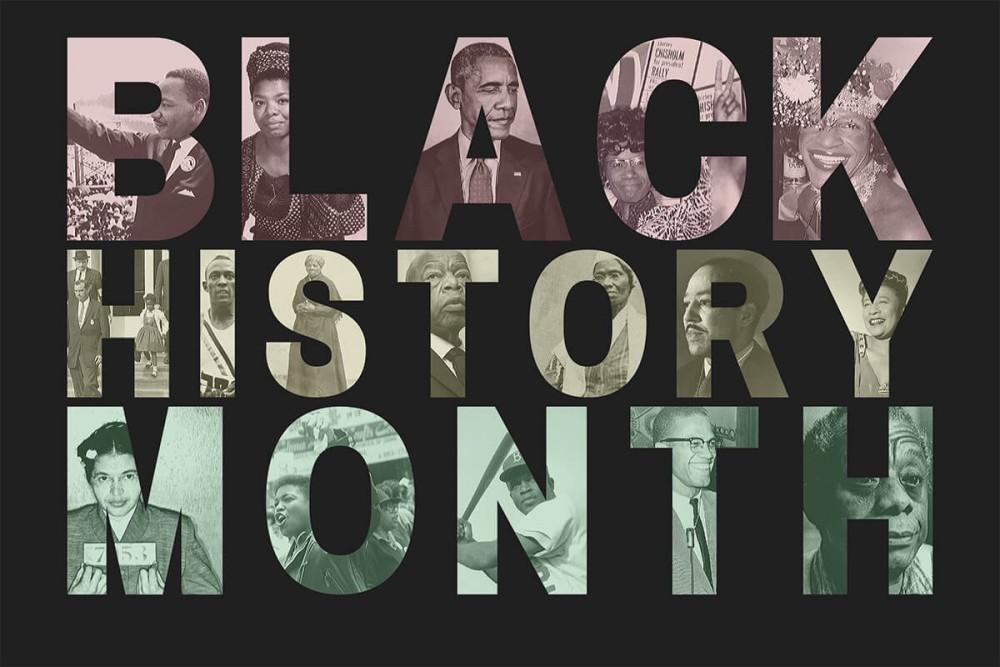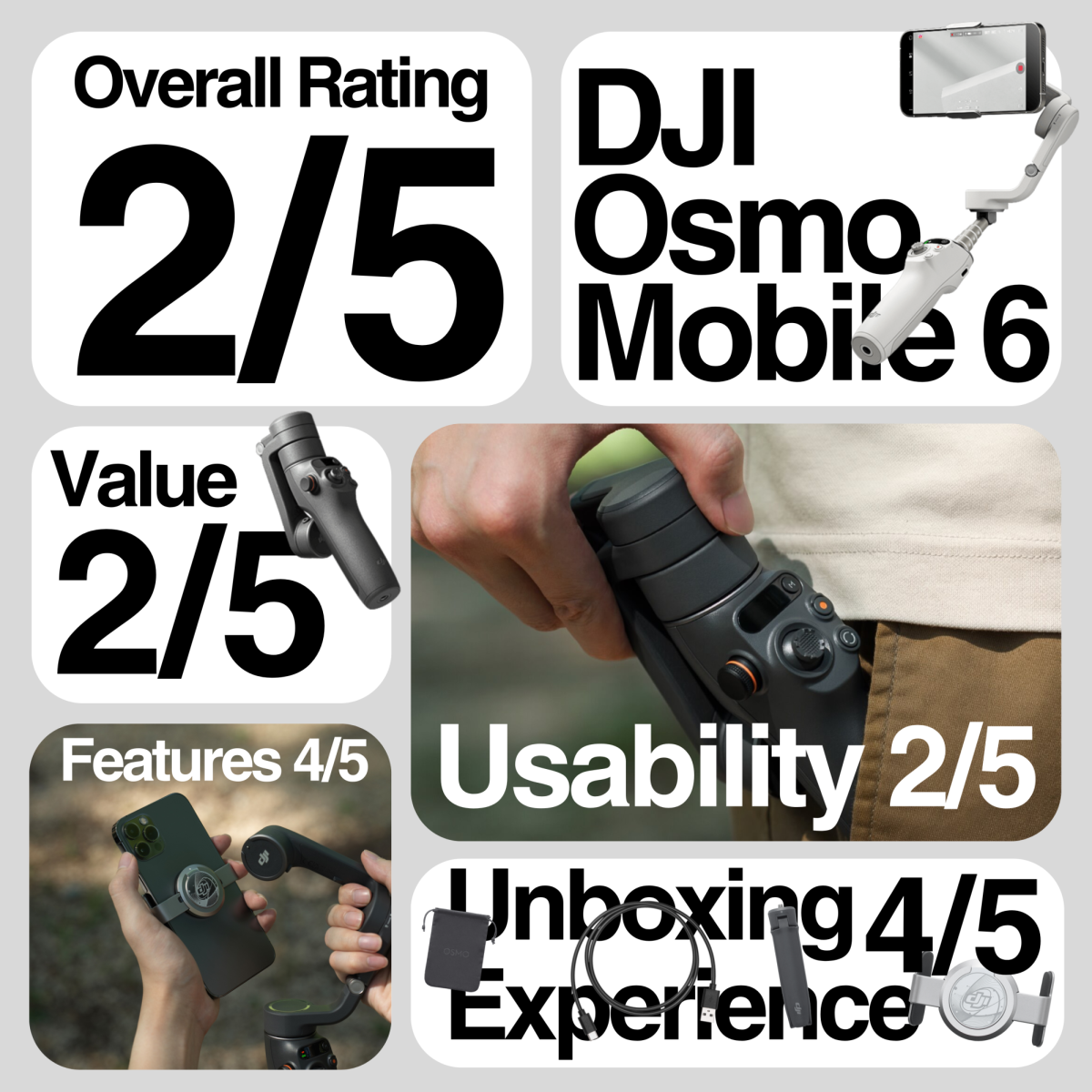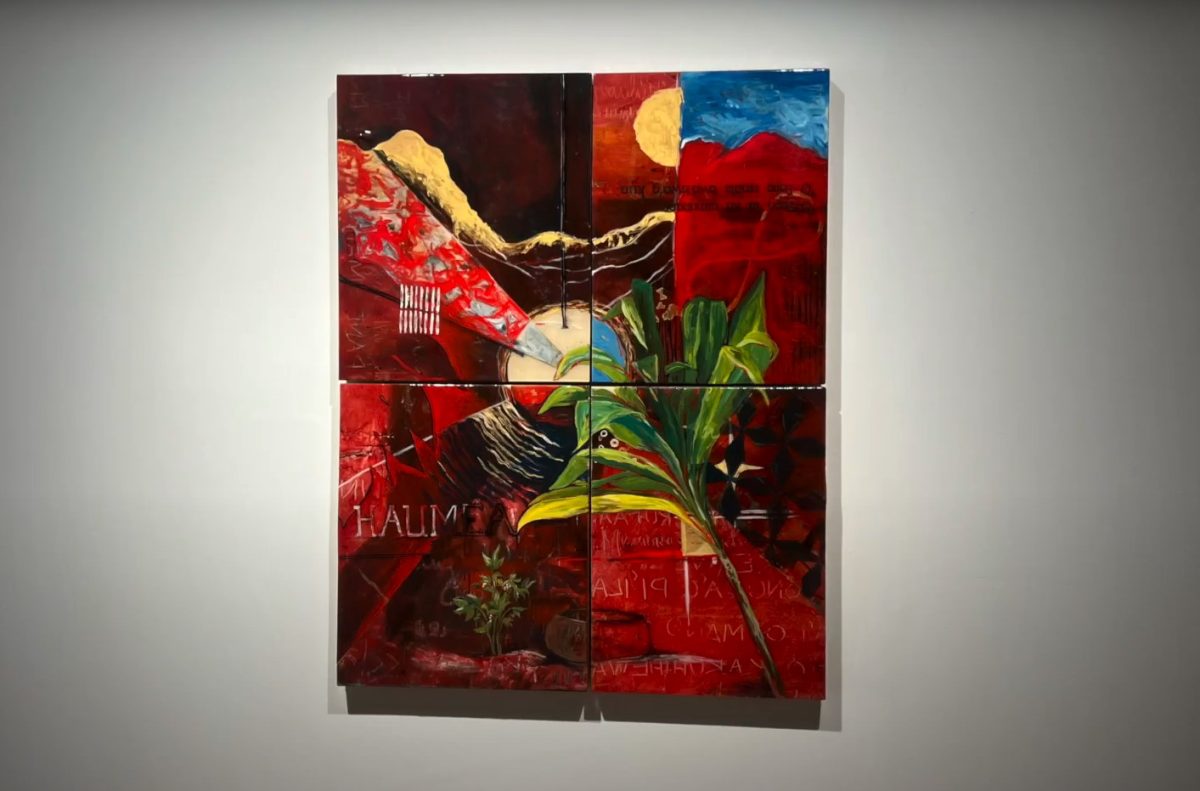Award-winning journalist Joanne Lipman talked Wednesday night at UH Mānoa about how people best navigate change in their lives, including sharing some of the secrets she learned from interviewing hundreds of people about the topic.
The content of the lecture — part of the Better Tomorrow Speaker Series and co-sponsored by the UH Journalism program — was based on Lipman’s 2023 book “Next! The Power of Reinvention in Life and Work.”
During her research, Lipman said she found common steps that everyone tends to take when dealing with profound changes in their lives, a sequence she called the “reinvention roadmap.” This roadmap has four stages: Search, Struggle, Stop and Solution.
“I asked everybody I met just to walk me through their process, and then I did the same thing with the scientists and the experts,” Lipman said. “I asked them, tell me about how this works. How do we get from here to there? And then we sat down, basically, with pen and paper, and mapped out the journey that each person was telling me.”
She added, “And I realized, I was absolutely floored, because when I looked at this in black and white, I realized they were all using different words, but they were essentially describing the same four steps.”
Also in this research, Lipman said, she found that marginalized groups showed more inclination to pivot toward making significant life changes but often because they don’t always have a choice. Baby boomers, women, women of color and members of the LGBTQ+ community were turned into, as Lipman called them, “necessity entrepreneurs.”
Throughout the talk, Lipman offered strategies and tips that she found recurrent in the many people she interviewed. For example, she said everyone needs an “expert companion,” who can be leaned on for support or reassurance throughout the process as well as to remind them not only of strengths but also where their weaknesses lay. She recommended a “CV of failure,” to remind people of when they have failed before but have come out of those situations stronger for the setbacks.
She also recommended that everyone takes regular breaks. Research showed her, she said, that working in a schedule of 90-minute hard and focused pushes, followed by a significant break, when repeated in a cycle created more productivity and creativity than an entire day spent forcing oneself to push through work.
“Researchers asked physicists and writers, so we’re talking left-brain and right-brain thinkers, to keep a diary throughout the day of their ideas,” she said. “And they found that for both groups, many of their best ideas and all of their sort of aha-moment breakthroughs, all of them came when they were doing anything but working. They were generally daydreaming.”
To wrap up her presentation, Lipman again emphasized the importance of recognizing discomfort and feeling “stuck” as an opportunity to take a leap in life. As the spring semester nears an end, Lipman provided advice for students who feel stuck or unsure about their next move after graduation by reflecting back on the key point of her new book.
“The one piece of advice I can give you is whatever you do, and you can try different things, you can be afraid,” Lipman said. “Fear is the biggest thing that prevents us from trying something new. Don’t be afraid to go and try something.”










